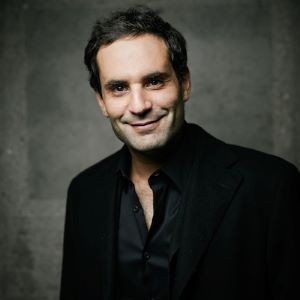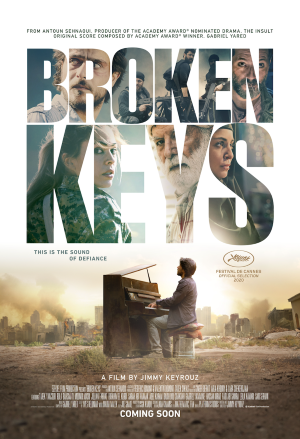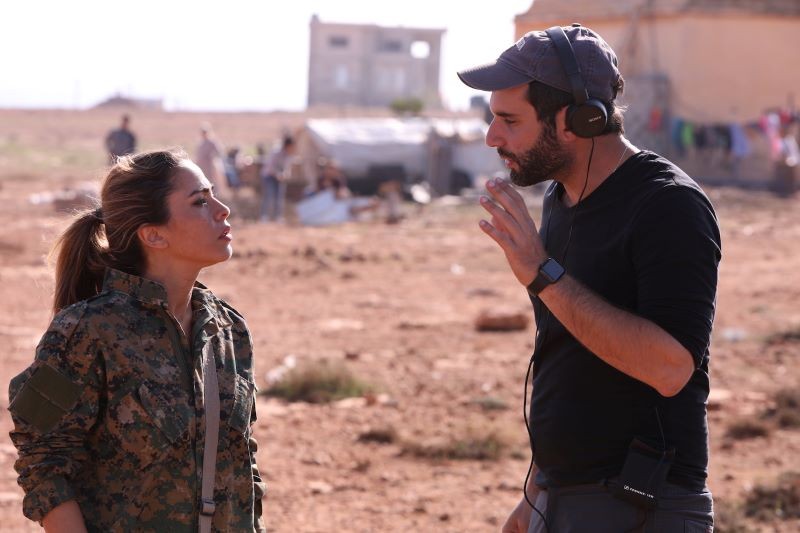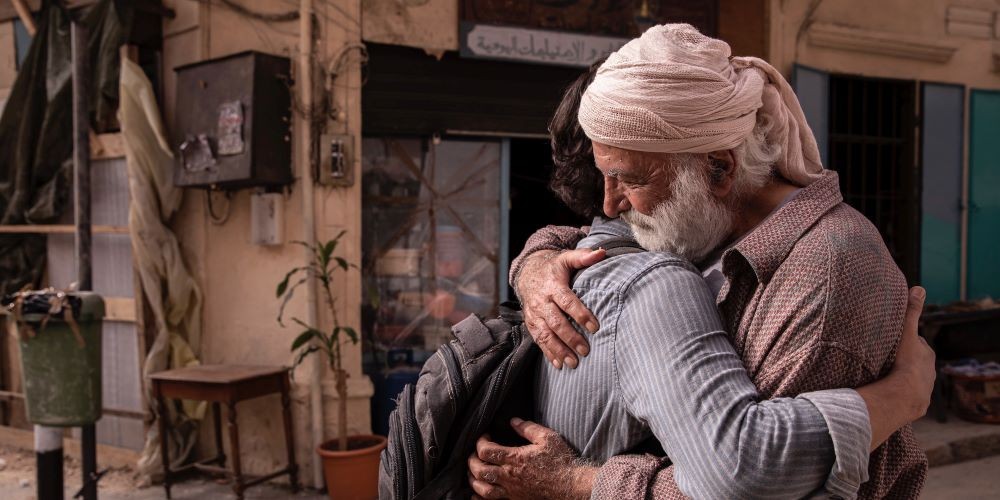On A Global Scale: ‘Broken Keys,’ the Whole Story
On A Global Scale is a bi-weekly series about international co-productions by Columbia filmmakers.
Welcome to another edition of On A Global Scale. This bi-weekly series celebrates the international spirit of the Columbia University film program and the incredible global collaborations coming out of it.
Directing a debut feature can be a pressure-inducing endeavor. “I think you’re never fully prepared for any of it,” attests alumnus Jimmy Keyrouz '16. “The weeks prior to the shoot, it starts weighing down on you. You’ve never done a feature and suddenly you’re supposed to be on set and make decisions for 43 days in my case.” Add to that the fact that part of the shoot took place in Mosul, Iraq, an area that only months before Keyrouz started production there had still been controlled by the Islamic State, and you’ve got a real challenge.
It was a challenge Keyrouz prevailed at. The result, his debut feature Broken Keys, was part of the line-up for the 2020 Cannes Film Festival, making it one of only 56 movies chosen for the Official Selection picked out of a total of 2,067 feature films. To put a crown on the successful festival run, the film was selected by Keyrouz’ home country Lebanon to be its official Academy Awards contender for the Best Foreign Film category.

In Broken Keys, a pianist tries to escape persecution in his Middle Eastern town where modern ways of living and music have been banned by an extremist group.
The release of the film is the final step of a long journey for Keyrouz. “This is more or less the last 6, 7 years of my life,” he chuckles. It all started with an idea Keyrouz had during his time at Columbia. “The war in Syria and Iraq was raging and I was following it very closely. Back then, ISIS was on the rise and you wouldn’t believe even in fiction what they did. But when I heard they banned music; I was struck. It was inconsiderable for me that something as beautiful and innocent as music could be banned. So, I felt it would be interesting to explore further. I started thinking, ‘What if someone had to rebuild a piano in a place where music has been banned?’”
This led Keyrouz to write his thesis film, Nocturne in Black. The short film won Keyrouz the Gold Medal in the 43rd Student Academy Awards, the National Board of Review Student Grant, the Caucus Foundation Production Grant, the Marion Carter Green Award, the IFP Audience Award and it was shortlisted for Best Live Action Short Film at the Academy Awards. “And then I forgot about it all together.”
That being said, it wasn’t Keyrouz’s intention to turn the short into a feature length film, at least not from the start. He went on to pitch a TV show in Los Angeles after graduation but quickly realized he might have aimed too high. “All the producers I met said: “You’re too young to be entrusted with this. A season of TV costs millions and millions of dollars. Why don’t you do a feature?” Everyone kept saying I should do a feature of that short. So, mid 2018 I flew back to Lebanon and started writing Broken Keys. A year later we started pre-production.”

That year of extending the short into a feature was one of the most difficult experiences for Keyrouz. “Writing from a short is a challenge in itself because a short is often a moment in time or a powerful scene that stands alone from a bigger piece,” he says. “In my case, I kept a similar beginning and a similar arc, but I filled a lot of gaps. It was hard because we usually don’t stretch a short into a feature, but there were so many things happening in that area of the world at the time that I think eventually the screenplay worked somehow.”
Out of over a thousand submissions, Broken Keys was selected as one of six scripts to be covered on the Annual Black List Feature Lab where it received further mentorship and development.
“It was a lengthy and hard process. English wasn’t even my first language,” Keyrouz points out. “For a long time I’ve written in French and Lebanese. For the sake of getting feedback from everyone, I wrote it in English. However, prior to the shoot I’ve rewritten the dialogue with someone from Syria. We translated the dialogue into the native tongue in what I thought was the most accurate way without losing the real meaning in order to make it as authentic as possible. I’d write the whole script in English and just translated the dialogue.”
And then the shoot came around. Instead of in New York City, Keyrouz suddenly found himself on location in both Lebanon and Iraq. And while the former was of course familiar to Keyrouz (Nocturne in Black was exclusively shot in Lebanon), the Iraq chapter packed more punches. “We had a military convoy with us the whole time. And by nightfall even they were telling us “It’s time to come back” with a certain nervousness. We could even still smell some of the bodies buried under the gravel. We saw a lot of beards cut on the floor. The ISIS fighters cut them down to avoid getting caught by blending in with the civilians.”
Still, Keyrouz saw the set as unnegotiable. “For us, it wasn’t an option not to do it. We had no budget for CGI when we wanted a war scene on a big scale or a drone shot of a ravaged city. We shot a lot of the scenes in Mosul and it was dangerous but also very authentic. It added artistic value to the film.” This came at a cost—time. “One question I struggled with—in between ISIS, the smells, the destruction—was, ‘What’s the least amount of shots I can make this scene work with if I have only one hour?’” At some point it started to become a joke: “Let’s combine shots.” In an ideal case, the director shouldn’t focus on time but how could you not? If you don’t get what you want in places like this, you’ll never get it!”
And still, the production’s challenges were not over when the shoot in Iraq came to an end. “We came back to Lebanon and it was the second day of the revolution in the country. Followed by an unprecedented financial crash. Followed by COVID-19. All the post-production was done during COVID. Gabriel Yared (the Academy Award winner who scored The English Patient, The Talented Mr. Ripley, Cold Mountain and many more) scored the film and he directed a whole team of musicians and engineers from his studio in Paris while they were playing in London. Maybe a decade ago, none of this would have been possible. Everything was not ordinary.”
None of this, however, managed to delay Broken Keys nor did the film lose its quality. The Academy will announce on February 9 if the film will secure the prestigious Best Foreign Film nomination, though Broken Keys is eligible in almost all categories.
And what is Keyrouz working on now? He is currently rethinking the show he went out to pitch in LA before he got turned away. Now, with the experience gathered from his first feature, the aim is not too high anymore. And an Oscar nomination probably won’t hurt.

